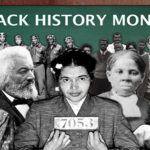.
By JAY REEVES
Associated Press
COLUMIBANA, Ala. (AP) _ Much has changed in Shelby County since Congress passed the 1965 Voting Rights Act to protect minority rights at the polls, but much hasn’t.
The county _ which successfully challenged one of the law’s key provisions before the U.S. Supreme Court _ has grown exponentially in the past five decades, yet its racial balance has remained roughly constant with whites constituting an overwhelming majority of the population.
Blacks have made electoral gains, but white conservatives remain in firm control of the sprawling marble courthouse and most of the county’s towns despite a smattering of black elected officials.
In 2010, Shelby County lawyers filed a lawsuit arguing that the standards of the 1960s aren’t relevant when it comes to which states and localities deserve strict federal oversight for any changes to election practices. The case made it to the U.S. Supreme Court, which ruled on Monday that a group of mostly southern states no longer had to seek Justice Department approval of such electoral changes.
Some black residents are now wary of what might come next, including the lone black holding a countywide office, Republican Aubrey Miller.
“It’s a premature burial of the Voting Rights Act,” said Miller, the county school board president. “This essentially kills the law.”
Lifelong black resident Ernest Montgomery said Shelby County has made tremendous progress in race relations since the 1960s, but he was still disheartened by the ruling.
“The reason progress has been made, and so much progress has been made, is because of that kind of legislation and those type of laws that have helped to level the playing field,” said Montgomery, 56.
The court’s decision hinged a municipal election involving Montgomery in the town of Calera in Shelby County, a bedroom community in metro Birmingham.
Shelby County _ one of the wealthiest, best-educated counties in Alabama _ has a population of about 197,000 that is 83 percent white. A mix of suburbs and hilly forests, it’s home to both Alabama’s largest shopping mall and its biggest state park; a Confederate cemetery and pricey bistros.
The county began booming as white residents fled Birmingham following the 1960s, a decade marked by racial strife in the city. The county’s population has increased five-fold since 1970, and what were once lazy two-lane roads are now highways clogged with rush-hour traffic.
Located about 33 miles south of Birmingham, Calera straddles Interstate 65 and is best known for its Heart of Dixie Railroad Museum, which includes two restored depots and a collection of vintage rail cars. The town of about 11,700 is more than 71 percent white, according to Census Bureau statistics, but it’s also one of Shelby County’s more diverse cities with a population that is 23 percent black.
Montgomery became the only black member of the five-person Calera City Council in 2004, winning in a district that was almost 71 percent black. The city redrew its district lines in 2006 after new subdivisions and retail developments sprang up in the area Montgomery represented, and the change left Montgomery’s District 2 with a population that was only 23 percent black.
Running against a white opponent, Montgomery narrowly lost a re-election bid in 2008. The Justice Department invalidated the election results because the city had failed to get federal approval of the new districts under the Voting Rights Act.
The council switched to an at-large election plan in 2009, and Montgomery won one of the six seats on the expanded council. He won re-election in August, finishing third among nine candidates for the at-large seats.
With Calera’s attempt to redraw its voting lines blocked by the federal government, Shelby County filed suit in 2010 to void the preclearance requirement of the Voting Rights Act. The Rev. Harry S. Jones, Montgomery’s pastor, said he agreed to intervene in the case on the Justice Department’s side after learning from the NAACP what the county’s Republican-controlled government was attempting to do.
Butch Ellis has been Shelby County’s lawyer for 49 years and recalls the days when the county enforced the state’s literacy test, in which would-be voters had to copy part of the U.S. Constitution before registering to vote. The practice disenfranchised large numbers of minority voters who lacked quality educations in a segregated school system.
He was first hired when Shelby County was controlled by Democrats and stayed on as the county passed to Republican control starting in the 1980s, when much of the South flipped to the GOP.
Ellis said Shelby County is a different place today than it was when the Voting Rights Act passed in 1965. The Supreme Court, Ellis said, was correct in saying a key provision of the law isn’t constitutional unless Congress develops a new formula for determining which states and municipalities deserve extra scrutiny because of race.
“We’ve just elected a black member of the county board of education in a countywide race over a white incumbent with no divisive issues involved,” Ellis said.
Miller won that race which Ellis described, but he isn’t sure his election was such a watershed event. He is, after all, the only black to hold countywide office.
“I do not take a lot of pride in the fact that it turns out to be the exception rather than the rule,” Miller said.
Now, Miller said, he fears Shelby County and the rest of the South will slide backward toward discrimination since the court has said the Justice Department lacks the power to approve or disapprove changes in local balloting procedures unless Congress makes changes.
“I don’t think there’s any hope Congress will do anything to tweak the law,” he said.
3









